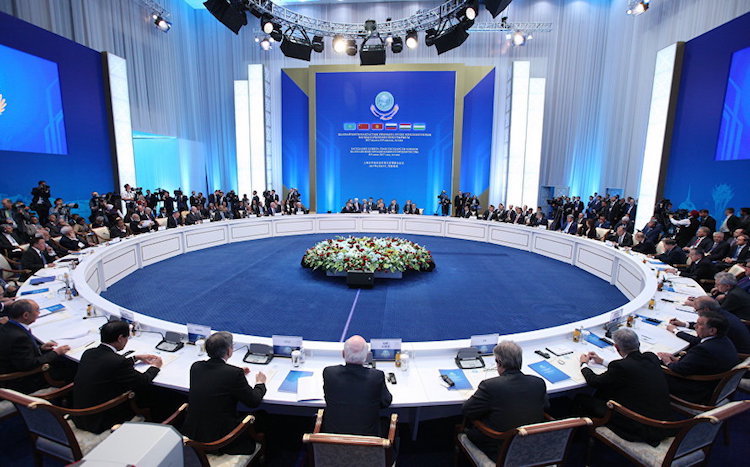By Denghua Zhang, ANU and Shivan, University of Fiji
While Denghua Zhang is a Research Fellow at the Coral Bell School of Asia Pacific Affairs, The Australian National University (ANU), Shivani is Lecturer in the School of Law at the University of Fiji.
CANBERRA | SUVA (IDN) — As strategic mistrust between the United States and China continues to deepen, Pacific Island countries have taken varying approaches. With the resurgence of COVID-19, Fiji once again sees itself at the centre of great power rivalry as assistance arrives from the two big donors.
In September 2020, David Panuelo, President of the Federated States of Micronesia, for an easing of tensions between the two great powers. By contrast, Palau has invited the United States to beef up its in-country military presence. Its diplomatic relations with Taiwan mean it has little concern about retaliation from China.
Fiji is taking a third path between these two strategies. The country has sought to leverage the regional dynamics for its own benefit—demonstrating how small countries can use their agency to shape great power engagement. Several factors have contributed to Fiji’s success.
First, Fiji has several characteristics that make it a heavy weight in the Pacific. It has the second largest population (900,000), second biggest economy (US$9.1 billion) and third largest land size in the region. Located in the middle of the South Pacific, Fiji is also a regional hub and hosts many international and regional organisations.
Second, China’s rise as a Pacific player and the ensuing geostrategic competition between it and the United States has meant Fiji has received more attention in recent years than in the past.
Third, Fiji’s growing confidence in dealing with external powers rests on 15 years of diplomatic experience. Alongside the ‘Look North’ policy that has guided its diplomacy since 2006, Fiji created the Pacific Islands Development Forum in response to its 2009 suspension from the Pacific Islands Forum. While forging close ties with other players such as Japan, Indonesia and India, it has also rallied international support for climate change action in the Pacific region.
China has handpicked seasoned diplomats to serve as ambassadors to Fiji, especially those with decades-long work experience in the region. Senior officials with deep knowledge of multilateral affairs have also featured heavily in China’s diplomatic efforts.
China has developed an all-round relationship with Fiji since the creation of the China-Pacific Economic Development and Cooperation Forum in 2006. The stand-off between Fiji and traditional powers in the wake of the 2006 Fijian military coup was seized by Beijing. China was among Fiji’s top three donors between 2010 and 2016—and its largest donor in 2013–2015.
For the first time in September 2010, China’s official news agency Xinhua established a branch and stationed a resident journalist in Suva. Beijing’s success in containing Taiwan’s influence in the country was demonstrated after Fiji closed its trade and tourism office in Taipei in May 2017. China has since deepened bilateral law enforcement and military cooperation, with the People’s Liberation Army dispatching its first military attaché to Fiji in January 2021.
The US government has similarly paid more attention to Fiji and other Pacific island countries. US President Joe Biden made history by addressing the Pacific Islands Forum meeting for the first time in August 2021. While Washington has provided US$118 million, the Pentagon is reportedly proposing a US$27 billion Pacific Deterrence Initiative to strengthen its Pacific military presence to counter China’s military threat.
At the local level, Suva largely views China’s increasing presence through the lens of state development. Fijian officials do not shy away from making bold statements about the vast benefits of a continued and flourishing relationship with Beijing. To them, Chinese aid—such as that given after Tropical Cyclone Yasa in 2020—has been cherished for arriving in dire circumstances.
The United States is also investing in Fiji’s development goals. After transitioning aid towards environmental resilience projects, funding humanitarian aid groups such as Field Ready and availing necessary hygiene material after Tropical Cyclone Harold, Washington has found popularity by remaining sensitive to needs of the local population.
Despite the perks of engagement, there are still Fijian concerns about an emerging foreign presence in the region. With China, these concerns range from debt recovery to the possibility of ‘Chinese institutionalism’—where the sponsorship of large projects cultivates foreign influence over domestic institutions, detracting from current practices and organisational self-sufficiency.
While Fijians are about this growing foreign regional presence, the enormity of pandemic aid distributed through monetary and material assistance has perhaps awoken the public to the importance of maintaining healthy geopolitical partnerships. They also recognise the equal importance of being able to assert their own interests through programs such as the Blue Pacific to ensure mutual benefit.
At the regional level, Fiji is the current rotating chair of the Pacific Islands Forum, but some of its neighbourly relations and appearances in regional organisations are somewhat controversial. This could regionalism and regional solidarity, feeding into the broader geopolitics of the Pacific region and endangering the future of the Blue Pacific project. [IDN-InDepthNews – 03 September 2021]
Note: This article was first published in EastAsiaForum.
Photo: Chinese State Councilor and Foreign Minister Wang Yi meets with Fijian Minister for Foreign Affairs Inia Seruiratu in Beijing, capital of China, June 11, 2019. (Xinhua/Ding Haitao)
Visit us on Facebook and Twitter.
We believe in the free flow of information. Republish our articles for free, online or in print, under Creative Commons Attribution 4.0 International, except for articles that are republished with permission.

